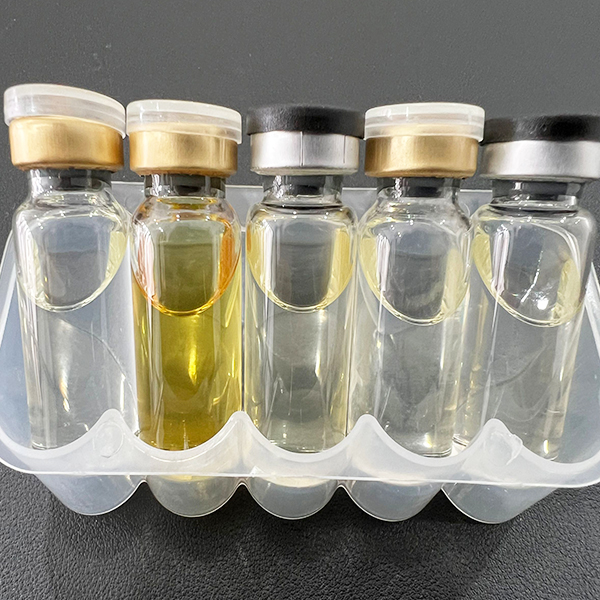Sulbutiamine is a synthetic derivative of thiamine (vitamin B1) that was initially developed in Japan to treat fatigue and mental performance issues associated with thiamine deficiency. It is known for its nootropic and energizing properties, with applications related to improving cognitive function, reducing fatigue, and enhancing mood. Sulbutiamine is more bioavailable than regular thiamine, which allows for greater absorption and effectiveness.
How Sulbutiamine Works
Sulbutiamine works primarily by increasing the levels of thiamine and its active metabolite thiamine pyrophosphate (TPP) in the brain, which plays a key role in the production of acetylcholine and the citric acid cycle (a central process for energy production). The increase in thiamine levels helps improve brain function, energy metabolism, and mood.
Enhances Cholinergic Activity:
Sulbutiamine can increase the levels of acetylcholine, a neurotransmitter involved in memory, learning, and mood regulation. This makes Sulbutiamine useful as a nootropic.
Improves Brain Energy Metabolism:
By increasing thiamine levels in the brain, Sulbutiamine can improve energy metabolism. Thiamine is essential for the conversion of carbohydrates into usable energy, which is crucial for cognitive functions such as concentration and mental clarity.
Boosts Dopamine and Serotonin:
Some research suggests that Sulbutiamine may help enhance levels of dopamine and serotonin, two neurotransmitters involved in mood regulation, making it potentially effective for individuals with symptoms of mild depression or anxiety.
Increases Blood Flow to the Brain:
Sulbutiamine is believed to improve cerebral blood flow, which may enhance oxygen and nutrient delivery to the brain, thus improving overall brain performance and reducing fatigue.
Benefits of Sulbutiamine
Cognitive Enhancement:
Sulbutiamine is often used as a cognitive enhancer, improving focus, concentration, and memory. By boosting the brain's energy production, it supports mental clarity and alertness.
Mood and Motivation Boost:
As a mood enhancer, Sulbutiamine has been shown to reduce symptoms of fatigue, stress, and mental fog, contributing to better emotional well-being and higher motivation levels.
Fatigue Reduction:
Sulbutiamine can help reduce physical and mental fatigue, which is particularly beneficial for individuals with demanding work schedules, students, or those suffering from chronic fatigue.
Improved Mental Clarity:
Due to its effects on the cholinergic system and overall brain energy, Sulbutiamine can enhance mental clarity, making it easier to focus on tasks and stay productive throughout the day.
Support for Depression and Anxiety:
Some studies suggest that Sulbutiamine may have antidepressant and anxiolytic effects, making it useful for individuals dealing with mild depressive symptoms or anxiety.
Neuroprotection:
The neuroprotective properties of Sulbutiamine help protect the brain from oxidative stress, which can contribute to cognitive decline and aging.
Dosage of Sulbutiamine
The dosage of Sulbutiamine can vary depending on individual needs and response, but common guidelines are:
Standard Dosage:
The usual starting dose is 200 mg to 400 mg per day, taken in one or two doses. For beginners, starting with a lower dose and gradually increasing is advised to assess individual tolerance.
Higher Dosage:
Some individuals may increase the dose up to 600 mg per day in divided doses, especially if they are using it for more specific cognitive or energy-related goals. However, higher doses should be approached with caution.
Timing:
Sulbutiamine can be taken in the morning or early afternoon, as its energizing effects may interfere with sleep if taken later in the day.
Tolerance:
If you experience a tolerance to Sulbutiamine, taking breaks (e.g., using it for a week and then taking a few days off) may help maintain its effectiveness.
Stacking Sulbutiamine
Sulbutiamine can be stacked with other nootropics or supplements for enhanced cognitive performance and energy:
With Piracetam:
Stacking Sulbutiamine with Piracetam, a well-known nootropic, may improve cognitive performance, focus, and mental clarity. The cholinergic effects of Piracetam complement Sulbutiamine’s ability to enhance acetylcholine production.
With L-Theanine:
For a balanced stack, L-Theanine, known for its calming effects, can be combined with Sulbutiamine to reduce potential overstimulation and improve focus without anxiety. This combination can offer cognitive benefits with a sense of relaxation.
With Rhodiola Rosea:
Rhodiola Rosea, an adaptogen, works well with Sulbutiamine to help the body adapt to stress while improving mental performance. This stack can help reduce fatigue and mental burnout.
With Caffeine:
Combining Sulbutiamine with caffeine may enhance its energizing effects and boost alertness, focus, and motivation. However, individuals sensitive to caffeine should start with a smaller dose to avoid overstimulation.
With Bacopa Monnieri:
Bacopa Monnieri, a nootropic herb for memory and cognitive function, can pair well with Sulbutiamine to promote both mental clarity and long-term memory retention.
Side Effects of Sulbutiamine
Sulbutiamine is generally well-tolerated, but some users may experience side effects, especially when taking higher doses. Possible side effects include:
Mild Headaches:
Some users report mild headaches, especially if they take too much or experience tolerance buildup.
Gastrointestinal Discomfort:
Nausea or stomach discomfort may occur in some individuals, particularly when taking Sulbutiamine on an empty stomach.
Overstimulation:In some individuals, the stimulating effects of Sulbutiamine can lead to nervousness, anxiety, or insomnia if taken too late in the day or in high doses.
Dizziness:
Dizziness can occur if the dosage is too high, particularly in sensitive individuals or when combined with other stimulants.
Tolerance and Dependence:
Long-term use of Sulbutiamine may lead to tolerance, meaning that higher doses might be required over time to achieve the same effects. This can also lead to psychological dependence in rare cases.
Allergic Reactions:
While rare, some users may experience an allergic reaction, including rash, itchiness, or swelling. If any of these symptoms occur, discontinue use and seek medical attention.
Safety Precautions and Considerations
Pregnancy and Breastfeeding:
There is insufficient data on the safety of Sulbutiamine during pregnancy or breastfeeding, so it is advised to avoid use during these times unless prescribed by a healthcare provider.
Pre-existing Health Conditions:
Individuals with pre-existing medical conditions, particularly those related to the liver, kidneys, or cardiovascular system, should consult a healthcare provider before using Sulbutiamine.
Drug Interactions:
Sulbutiamine may interact with other stimulants, antidepressants, or medications that affect the dopamine or serotonin systems. Always check with a healthcare provider before combining Sulbutiamine with other medications or supplements.
Moderation:
While Sulbutiamine is generally safe, it is important not to exceed the recommended dosage, especially when combining it with other substances, to prevent overstimulation or side effects.
Conclusion
Sulbutiamine is a powerful nootropic with significant potential to enhance cognitive function, mood, and energy levels. It works by boosting thiamine levels in the brain, which helps support mental performance, focus, and fatigue reduction. When used responsibly, it can offer a range of benefits for improving mental clarity and motivation.
However, as with any supplement, it's important to monitor for side effects, particularly when stacking with other substances, and to use Sulbutiamine in moderation to avoid potential tolerance or dependence. Always consult a healthcare provider before starting any new supplement regimen, particularly if you have underlying health conditions or are on medication.





